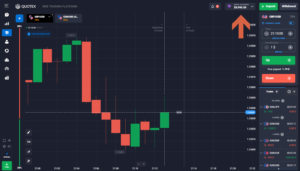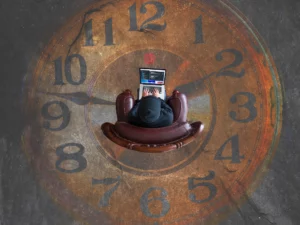For many years I operated as an independent ‘local’ futures/options trader on the LIFFE floors, both old and new. One of the things I could never understand was the need for some other locals, whether options or futures traders, to move on to a casino the moment the market closed. For some traders, the casino appeared to be the natural progression once the daytime trading had ended. For me switching from ‘house’ to ‘mug-punter’ was anathema to the skill and discipline required of me throughout the day.

What you will read in this Post
Pit Trading
In the futures pits each local trader had their own unique methodology when determining the future direction of the market, the timing of entry into the market, the rules on cutting the losing position, and the timing of exiting a winning position.
This whole procedure could and frequently did take place in a matter of seconds as opposed to minutes, days, or even months (which was often the case with the options market-maker who would generally only see the back of a position at expiry). Within their kaleidoscope of different rules and disciplines, successful futures locals all had one thing in common, they got the market right more often than they got it wrong. The ones that got it wrong were easily discernible, or maybe not, since they disappeared from the exchange.
Clearly, there were futures locals ‘haves’ and ‘have-nots’ operating and the difference between the two sets cannot be put down to luck, the ‘haves’ had longevity. If this longevity is not built on luck then the short-term future trader’s success must be built on their ability, irrespective of whether it is rooted in a better understanding of, say, technical analysis, or an ill-defined sixth sense developed from standing in a pit trading as, say, a corporate broker. These short-term traders are not Warren Buffets but they do have their own unique ability to see the wood from the trees, to be able to make sense of the ‘noise’ of very short-term market gyrations.
Efficient market theory
Efficient market theory (EMT) would have us believe that there is a 50% chance of a market going up or down assuming all knowledge was available to all potential market participants immediately it became available. If this were the case then the old adage: “It is better to be lucky than be good” would stand. The assumptions underlying EMT cannot, and never will, exist so the ability to define future market movements becomes an acquired skill.
(Risk warning: Your capital can be at risk)
Roulette
Contrast this acquired skill with the most iconic of casino games, roulette. Here the house edge is the zero or double zero number. The skill of the roulette operator is in getting punters to play the game since quite clearly the slot the ball falls into cannot be forecast.
For the punter, the only skillful roles required are to understand what each chip is worth (although this skill is probably a bonus, not a prerequisite) and know how to lose (sorry, place) them on the beige. But these are not skills that can overcome the probability of losing at roulette; playing roulette is out-and-out gambling, even if it can be fun and exciting.

Conclusion: Is binary options luck or skill?
In the above context, where do binary options stand? Binary options are often criticized as being plain gambling (although as a devout atheist, hedonist, and all-around degenerate, I can’t see that as being an issue) but this clearly need not be the case. Anybody that plays roulette is a gambler: in contrast, people that trade binary options may be gambling but equally, they may be the equivalent of the successful short-term futures trader.
Binary options are not the problem any more than any other financial instrument that people speculate on is the problem. Those traders that consistently make money are not gambling; alternatively, those traders that have no methodology, no discipline, and no understanding of market ‘noise’ are gamblers.
(Risk warning: Your capital can be at risk)





